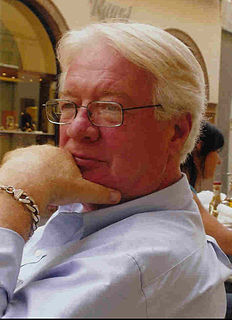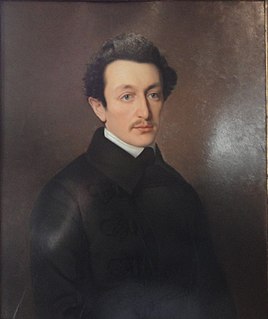A Quote by Percy Bysshe Shelley
When the power of imparting joy is equal to the will, the human soul requires no other heaven.
Related Quotes
If welfare and equality are to be primary aims of law, some people must necessarily possess a greater power of coercion in order to force redistribution of material goods. Political power alone should be equal among human beings; yet striving for other kinds of equality absolutely requires political inequality.
... whenever Christ, the Bridegroom of pure souls, is mystically united with each soul, He gives the Father occasion to rejoice over this as at a wedding. It is Christ Himself Who says, 'Joy shall be in heaven over one sinner who repents' (Lk. 15:7). For joy, according to the Apostle, is the fruit of the Holy Spirit (Gal. 5:22), Who through conversion brings back to Christ those living in repentance, and reunites them with Him. And this joy embraces both those in heaven and godly men on earth. That is why there is joy in heaven over one repentant sinner.
The pursuit of God is not a part-time, weekend exercise. If it is, chances are you will experience a part-time, weekend freedom. Abiding requires a kind of staying power. The pursuit is relentless. It hungers and thirsts. It pants as the deer after the mountain brook. It takes the kingdom by storm...The pursuit of God is a pursuit of passion. Indifference will not do. To abide in the Word is to hang on tenaciously. A weak grip will soon slip away. Discipleship requires staying power. We sign up for duration. We do not graduate until heaven.
On the theory of the soul's mortality, the inferiority of women's capacity is easily accounted for: Their domestic life requires no higher faculties either of mind or body. This circumstance vanishes and becomes absolutely insignificant, on the religious theory: The one sex has an equal task to perform as the other: Their powers of reason and resolution ought also to have been equal, and both of them infinitely greater than at present.
Though we think intrinsic desires tend to be pretty stable, we do not think they imply anything like the amount of predictability in behavior that traditional virtue ethics requires for someone to have a one-word-in-English character trait such as "benevolence". Other things being equal, a person with more of a desire for other people's wellbeing will do more for other people's wellbeing, but things are almost never equal.
So saving grace, converting grace, for Augustine, is God's giving us a sovereign joy in God that triumphs over all other joys and therefore sways the will. The will is free to move toward whatever it delights in most fully, but it is not within the power of our will to determine what that sovereign joy will be.
So deep and meaningful is the joy and the enthusiasm that is born in one's mind and heart by human love and helpfulness that it has the power to motivate for a lifetime. . . . You don't have to be a doctor to say or do that which puts light in a human eye or joy on a human face. Simply practice Jesus' commandment that we love one another. Go out and do something for somebody. These are the things that make happy people. Here is the one never-failing source of the joy and enthusiasm we are talking about.
Plato in his dialogue The Phaedo says that whereas sticks and stones are both equal and unequal, (so maybe what that means is that each stick is going to be equal to some other sticks and unequal to some other sticks, so equal to the stick on the left maybe but shorter than the stick on its right) the form of equal is going to be just equal, and it won't partake of inequality at all. And it will be the cause of equality in things that are equal, for example, equal sticks and stones.






































